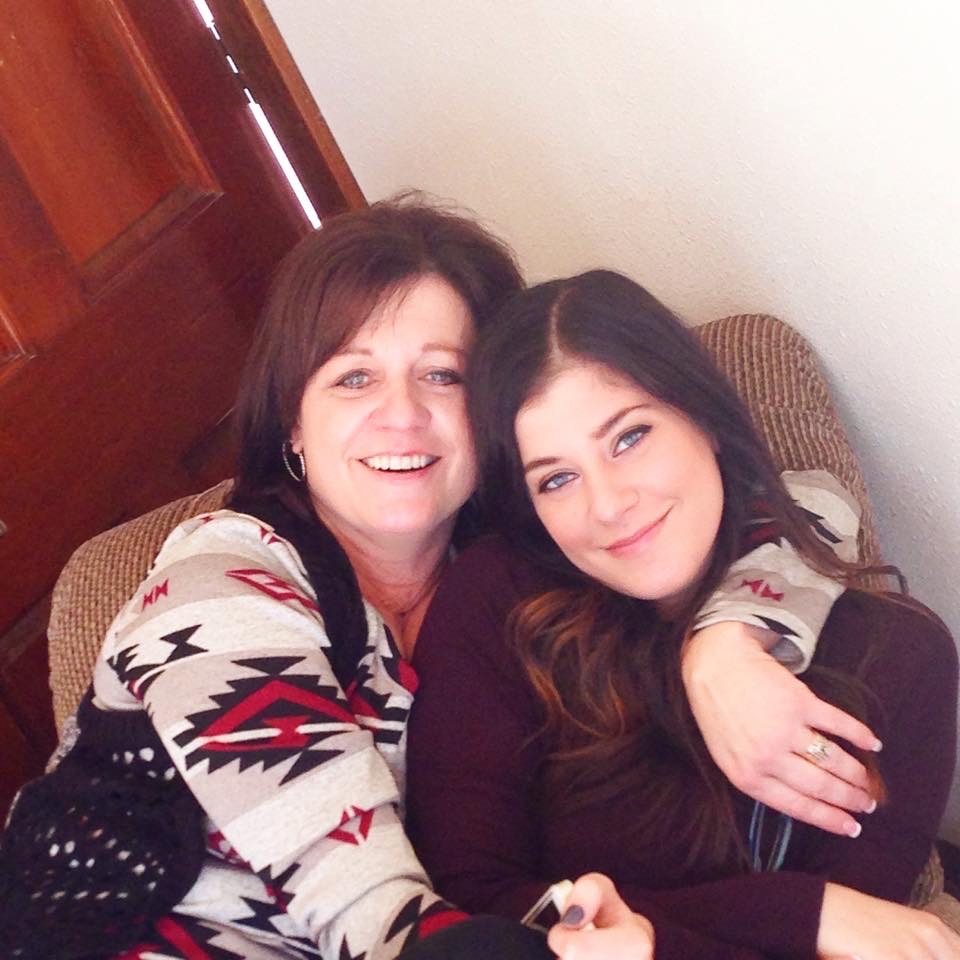
Courtney
Caregiver to Mom
When I was 23, I became a caregiver for my mom, Sandra. My stepdad, brother, and I all cared for her after she was diagnosed with Stage 4 Glioblastoma in March of 2016, until her battle came to an end on December 10, 2016. I always talk about how as a caregiver, we’re in a club we never chose to be in, but we wouldn’t change it for the world. Caregiving doesn’t have a stop date. Once you are one, you never get rid of the title because you dedicated a portion of your life to your loved one when it mattered the most.
Terri
Caregiver to Husband
My husband, Jim, was diagnosed with a glioblastoma in 2013. For over 5 years, Jim did great. He went through many protocols and treatments, but we maintained a fairly normal lifestyle for years. During that period, I was Jim’s advocate.
In May 2018, Jim had a third brain surgery. From that time until his death on October 11, 2019, he was never the same, and I became his caregiver. What that entailed was everything from making all of Jim’s appointments, to preparing his daily meds, to eventually, helping him dress, shower, get him in and out of the wheelchair, and the car. It was incredibly labor-intensive, and I wouldn’t change one moment of my time being Jim’s caregiver.
There is no question that there is comfort in talking to people who have gone through this hardship. I’m happy to help anyway I can.
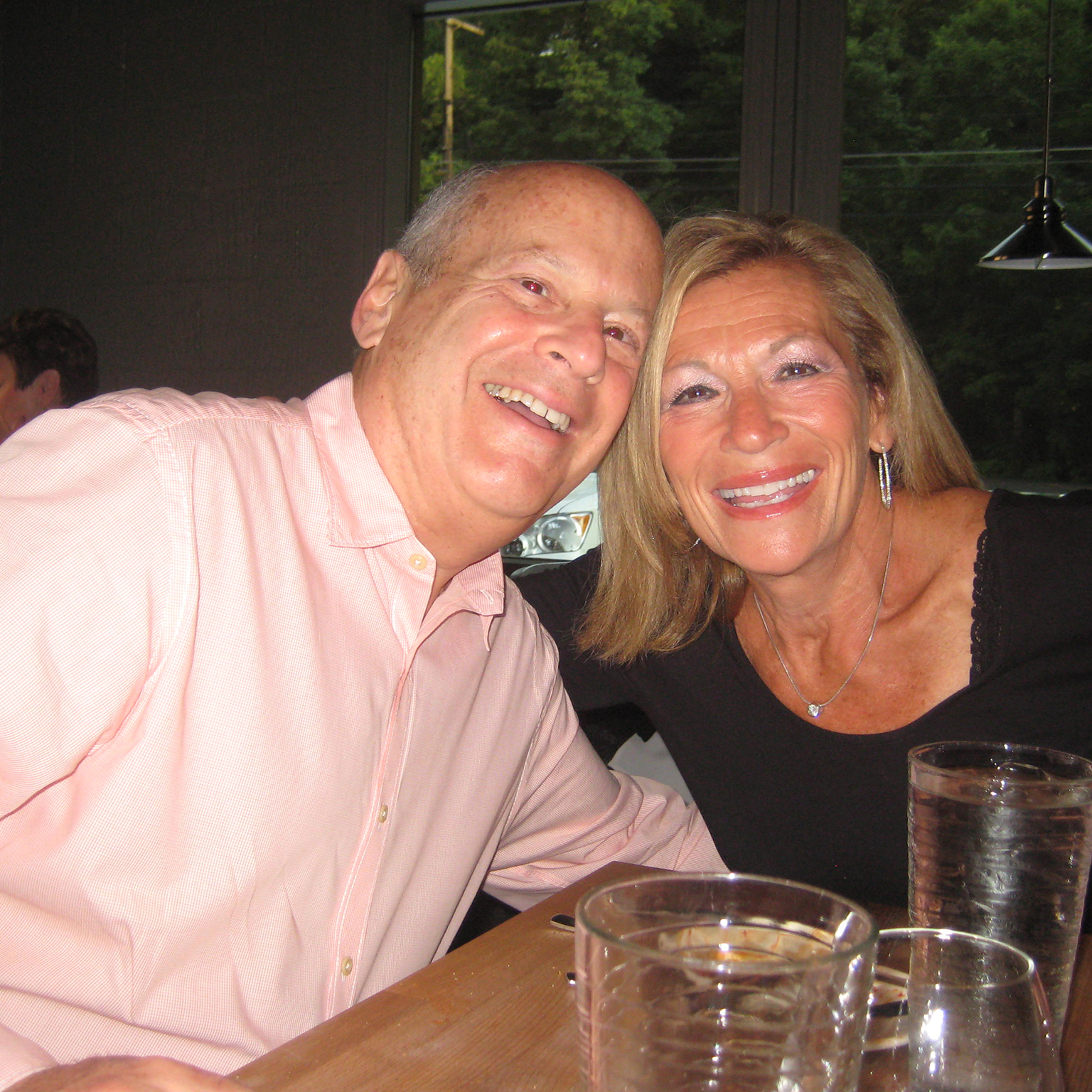
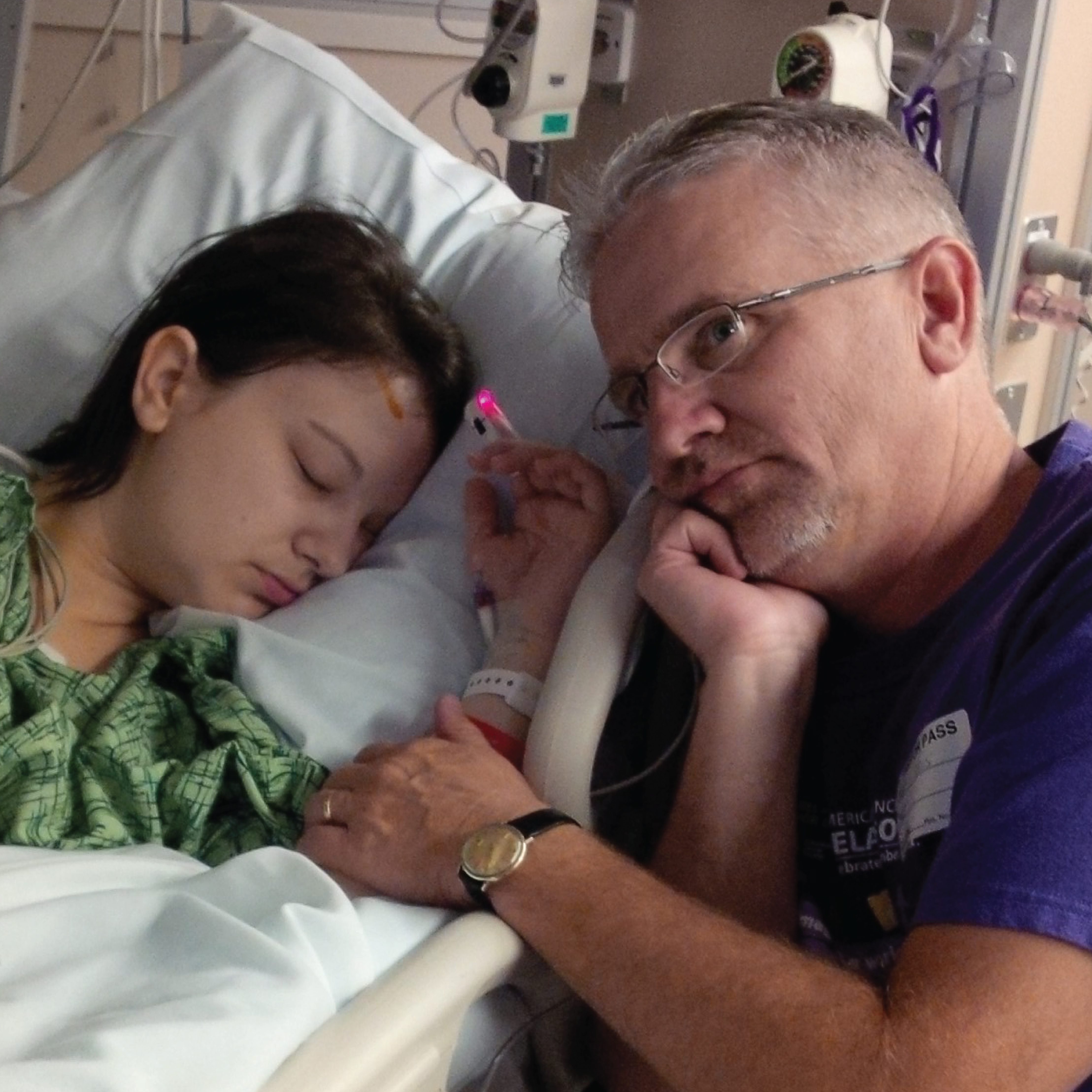
Chris
Caregiver to Daughter
I have had the privilege of being a secondary caregiver (or sometimes I refer to it as playing off the bench) for my daughter Allie. But it seemed very natural for me to walk alongside Allie because I am a 26-year survivor of a microcystic meningioma.
At the age of 24, Allie was diagnosed with an anaplastic ependymoma. What made it especially difficult for me to watch was that the diagnosis came only 11 days short of her first wedding anniversary. If this had happened a year earlier her mother and I would have been her primary caregivers, but now we really needed to be cautious and respectful of our son-in-law, Mitch, and his role as caregiver. I wanted to be there to support them and asked if there was anything I could offer. Both of them have continued to look to me for questions and answers based on my own knowledge and experience.
When Allie and Mitch were called to come back into the doctor’s office only an hour after her MRI, we all knew something wasn’t right. She wanted her mother and me to accompany them. At that time I was just trying to keep my mind clear enough to listen to the information and details.
Throughout this journey some of the questions Allie had were about scans, surgery, recovery, medications, etc. I always told Allie that each story is a least a little different, but I would always share with her what I had learned from my experiences.
Throughout Allie’s journey she and Mitch have asked me to be at every follow up visit. I’ve sat in many waiting rooms with Allie waiting for her name to be called for another MRI. I’ve held her hand up to and after surgeries, scans and lumbar punctures, and we’ve celebrated victories along the way. It’s always an honor to be asked to come with them to follow up visits. I’ve always been encouraged by Allie to ask any questions of the doctor that came to mind. I’ve tried to listen, take notes, ask questions and look for ways to celebrate when things require a celebration. We cry together at times, and we thank God for every victory.
Mitch is the best! He sets me up to be a successful secondary caregiver. If the starters don’t bring their best effort, playing off the bench can be very frustrating. Allie and I have both been blessed because Mitch is the best caregiver for my daughter. I would do anything to help him care for her. I love them both. I thank God for them and the opportunity they’ve given me to assume this role.
Daniella
Caregiver to Husband
I am a wife to my husband, who is currently an oligodendroglioma survivor and a mom to a young daughter. My husband and I navigated a brain cancer diagnosis, surgery and treatment while I was in the later stage of my pregnancy 3 years ago. I learned a lot during that time about the strength and resiliency needed to overcome so many challenges in a short period of time which has allowed me to grow and have a more simplistic outlook on life. While being a caregiver can seem like a job on its own at times, my view on being one goes beyond taking my husband to appointments and helping him at home when needed. My view on the term “caregiver” is being an advocate, support system (physically, emotionally and mentally), a clearer perspective into the reality of the situation, and knowing that it’s okay to reach out to others when I need support and guidance. Being a caregiver to a loved one is a selfless act and although greatly needed and appreciated, comes with personal challenges that I have learned to overcome as they arose. No caregiver is “perfect” but recognizing strengths and areas of weakness helps me become a better advocate and wife. I welcome the opportunity to connect in the hopes that I can provide a listening ear in a judgment-free zone. Nobody is alone and it’s important to feel supported as a caregiver.
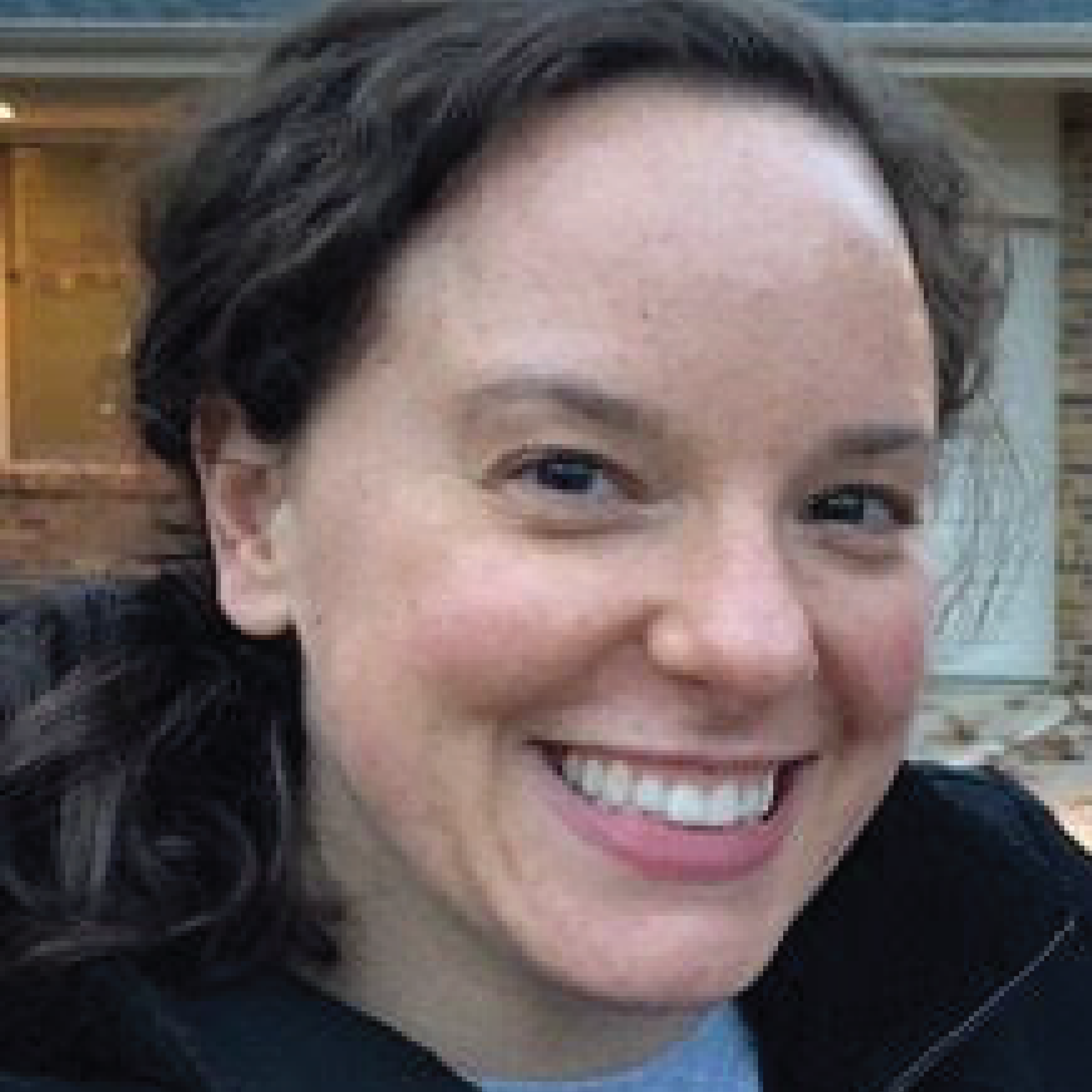
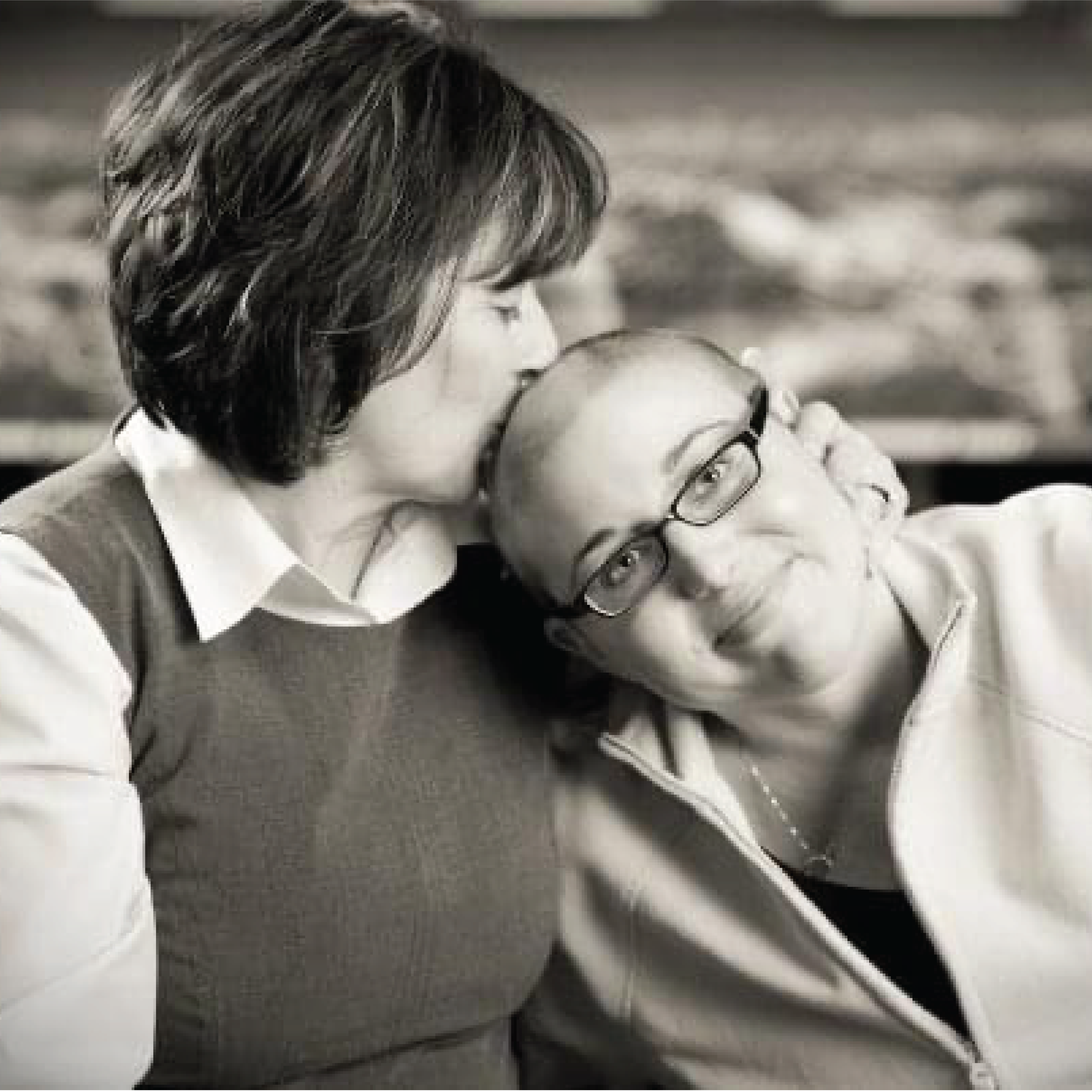
Sue
Caregiver to Daughe\ter
I am a wife and mother of three: 47, 45, and forever 37. I am a survivor of child loss. A former high school and college English teacher, I am now retired to spend time with our one and only granddaughter and to support those who are living the Hell we survived.
Sometimes life throws us curve balls that are very difficult to see or catch. While we may not understand the “why,” we must live with what is thrown at us. As I always told my three daughters, “While you may not be able to control what happens, you can control your reaction to it. That will determine the outcome.” So, when our daughter was diagnosed with Brain Cancer in April 2008, I was forced to model my “words of wisdom.”
When I was 12, my father died from Brain Cancer. In February 2008, our daughter Heather (28) began having headaches. Of course, I never EVER thought of Brain Cancer after 45 years of not hearing those words. After going through other possibilities and physicians, Heather received an MRI. Heather called me at work and simply said, “Mom, I need you to come home. I have a brain tumor.” Heather was ultimately diagnosed with an anaplastic astrocytoma.
My role as her caregiver began the day we heard the word “tumor.” Of course, as her mother, I was always her caregiver, but now a new dimension to the definition became evident. From finding the right medical team, to being an emotional support while she continued to live her life to her fullest to ultimately physically taking care of her while she moved into our house, my role as a caregiver evolved over Heather’s eight year journey with a brain tumor. Eight years of fighting this horrific disease. Eight years of making memories we will never forget. Eight years of highs and lows. Eight years of hope. While Brain Cancer took her life, it never took her spirit. She beat it on so many levels, just not the one to keep her with us.
From neurosurgeon, to all the preliminary testing, to the actual surgery, to the diagnosis – we have all been there. It is like a slow-motion nightmare that never ends. Details haunt me to this day.
Mitch
Caregiver to Wife
I have served as the primary caregiver for my wife, Allie. In 2016 she was diagnosed with an ependymoma. A caregiver’s role can be quite complex and even difficult to explain or define. I think that it can change for every individual and situation, sometimes heavy in physical tasks while other times purely emotional.
The type of treatment required and the effects it has on the cancer fighter can be vastly different and therefore the requirements of a caregiver can change. I’ve assisted Allie in walking for the first time after surgery, encouraging her that she is strong enough. I strive to lift her spirits on the tough days when we feel overwhelmed or the pain is a set-back.
We’ve endured many follow-up MRI results and while some of those have shown recurrences, we continue to fight together physically, spiritually, and emotionally!
We spend our time between treatments and appointments with our dog, Kona; hosting friends for a game of cornhole; and kayaking. We love travelling together and experiencing new, beautiful places.
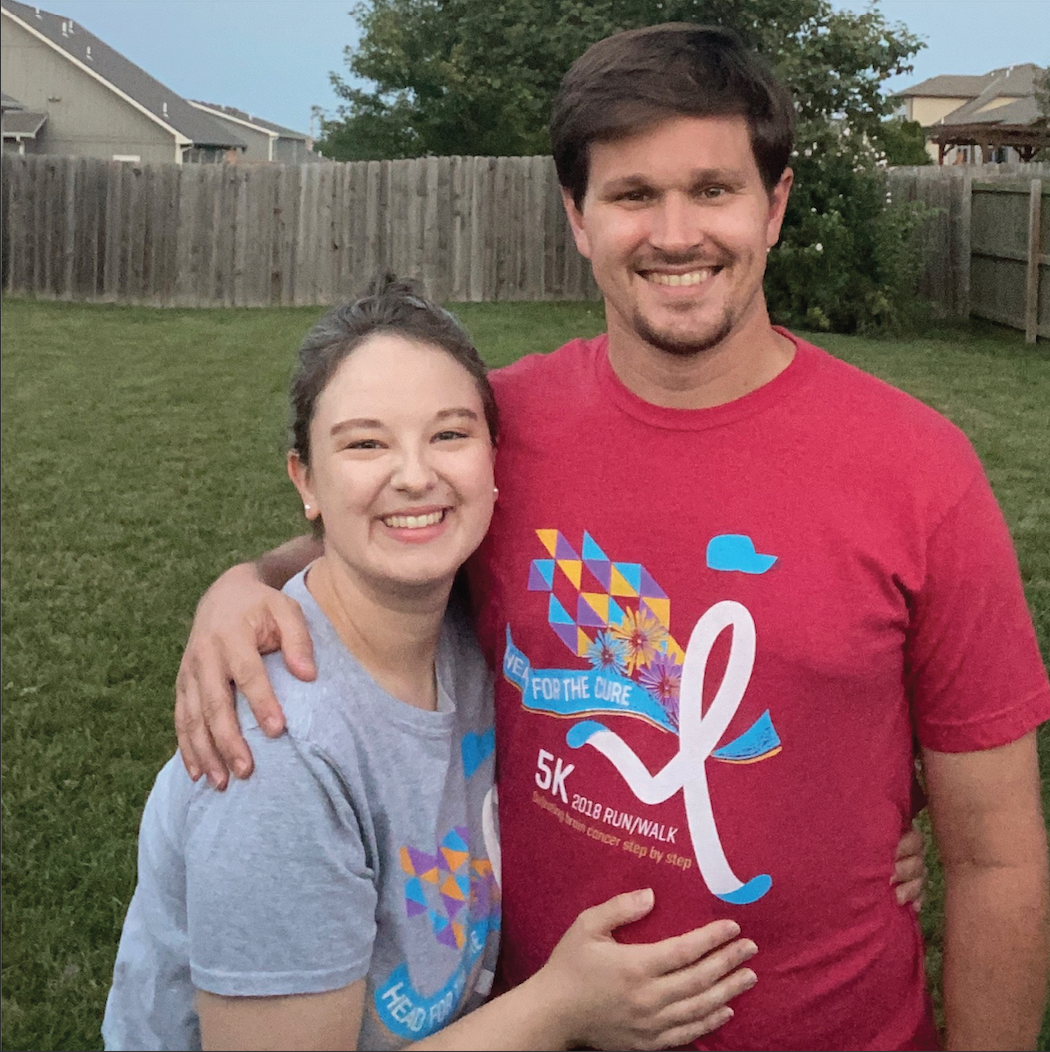
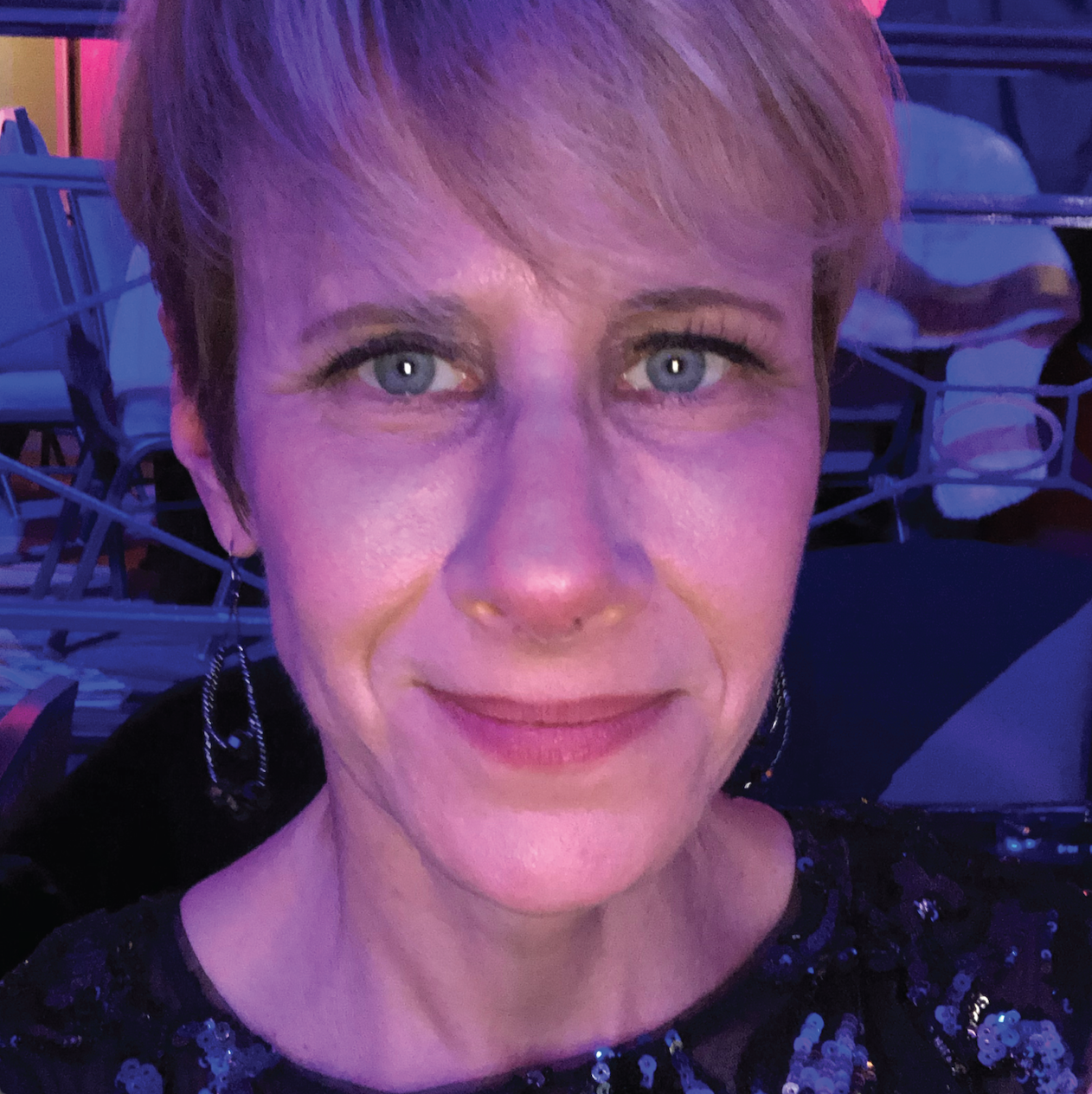
Heather
Caregiver to Husband
My name is Heather Vasek. I’ve lived in Austin, Texas for the past 25 years. I was a caregiver to my husband Jim for 28 months until he succumbed to glioblastoma on May 29, 2017 at the age of 47. We had been together for 26 years, and married for 22 years.
He endured 2 surgeries, used the Optune device, and participated in 4 clinical trials. Jim was fortunate to have relatively good quality of life until the last six months of his life, with the last 7 weeks on hospice at home. Six months after Jim passed away, I became a caregiver to my dad until he died liver failure in July 2018. I had known people who had been diagnosed with brain cancer before then, but it was a completely different experience facing it up close. Having to care for my dad on the heels of my husband’s death was also a double whammy.
I am fortunate that I have a career in health care policy and lobbying, which gave me a lot of tools to understand the health care system and help advocate for what my husband and dad needed. That is definitely one of the biggest challenges being a caregiver.
I am a mother to two children who are now 21 and 17, but being a mother does not necessarily prepare you for the challenges of being a caregiver to a spouse or parent. There are a lot of hard times, but there are also treasured, beautiful times. Being a caregiver has certainly been the most transformative experience of my life. I found strength and resilience that I did not know I had, and I definitely know myself better than I did five years ago.
I hope that as a Caregiver Ambassador with Brains for the Cure, I can share my experiences with other caregivers to give them some hope, comfort, and maybe even a laugh or two.
Tom
Caregiver to Wife
When I married my wonderful wife Barbara in 1996, we exchanged the same vows as so many other couples: to love and honor one another through the many different seasons of life, always considering the needs of the other above our own and caring for each other no matter the circumstance. That typified our marriage and brought “life” to so many others along the way.
In January of 2014, Barb was diagnosed with stage 4 glioblastoma. As you can imagine, we were shocked, dismayed and even disappointed that there were so many good things happening in our lives at that time. Life for all of us changed quickly. There were endless appointments, surgery, rehab, radiation and chemo treatments coming along with working and raising our young sons and keeping up with the other necessary parts of our life. Many decisions had to be made and many of those were very difficult, but I had made a vow to her. Being her caregiver meant meeting her daily needs as best as I was able. I made mistakes and wasn’t always perfect but we made it work.
After a 22-month battle, Barbara lost her struggle, but the fight continues. My heart is to encourage others through this journey and help in any way I can.
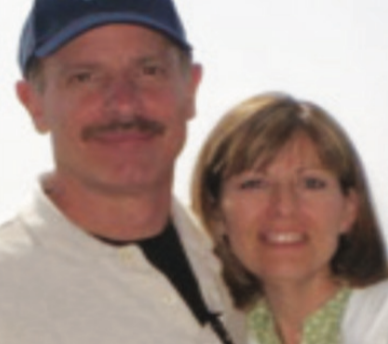
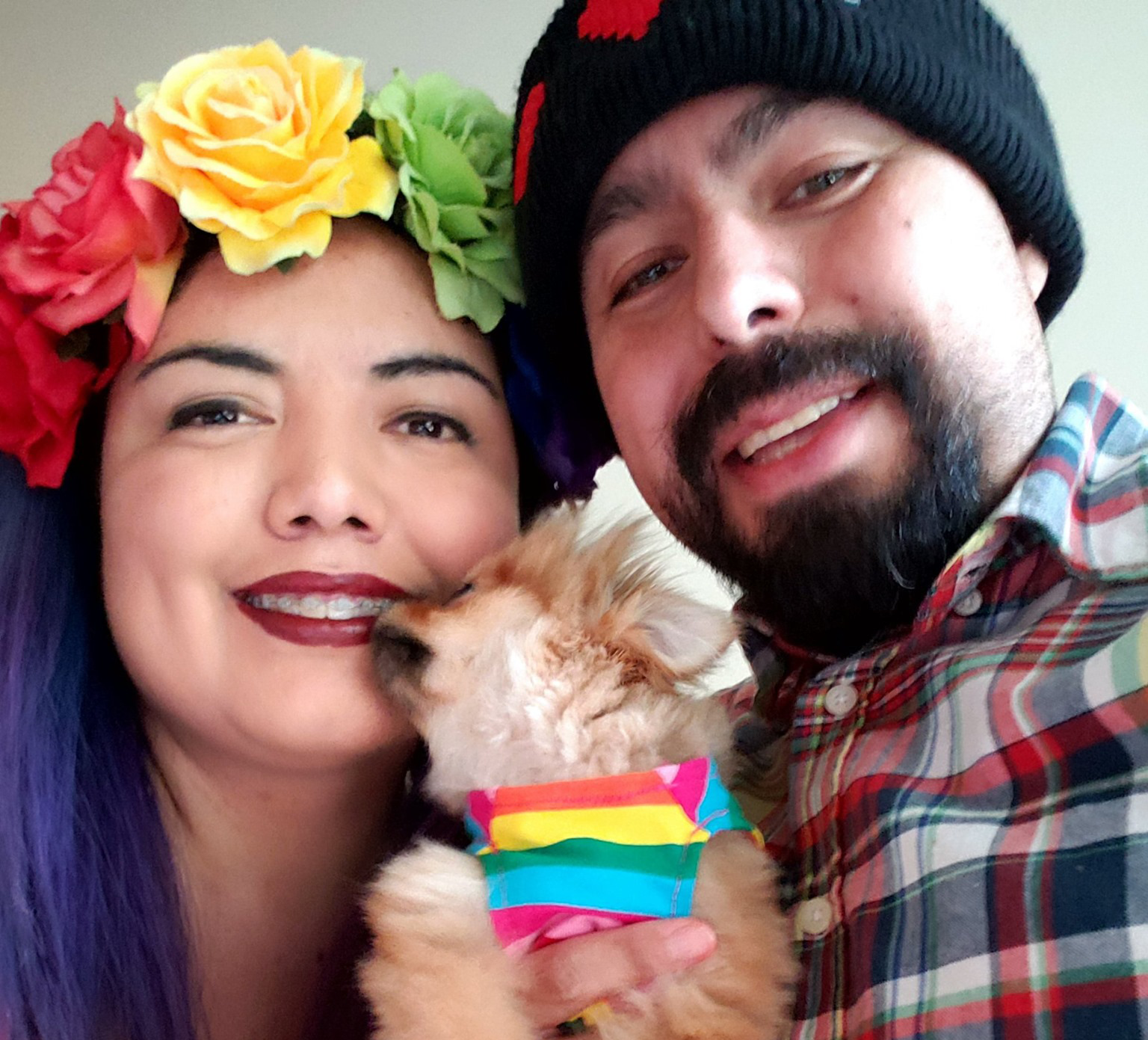
Melissa
Caregiver to Husband
My name is Melissa, I’m 36 and I live in Redmond, Washington. I was a caregiver to my husband Erik, who had a recurrence of his brain tumor in June 2020. He passed away in September 2020 at the age of 41.
Erik had his first round with glioblastoma in the summer of 2015 and had successful surgery in 2015. When I met him in the summer of 2018 I wouldn’t have even known he had cancer previously except for the fact he wore the Optune device. The Optune device helped to destroy brain cancer cells.
Previous to his recurrence of his brain tumor Erik and I spent two beautiful years together. We had struggled all our lives to find someone special to share this life with and when we found each other we went ahead full steam. We went to concerts, traveled the country and the world. We got a puppy and named her Jam and she was our princess. During these first two years together, I never really considered myself Erik’s caregiver as he was pretty independent and tried to shield me as much as he could from cancer so that we may lead “normal lives.”. Since he was so young and healthy and every MRI came back fine it was easy to imagine a world in which this cancer just never existed. When his brain cancer came back I was thrust into a crash course of learning about cancer, treatments, hospital and patient advocacy. Though Erik had wanted to shield me, he couldn’t anymore and it was time for me to take over.
I learned that caregiving is more than just holding someone’s hand and telling them you are there. It is patient advocacy. It’s writing down questions in preparation for doctors who round at 6am and spend just a few minutes with you. It’s asking for services to help your loved one through their journey including spiritual services, palliative services, mental health services. It’s encouraging your loved one to fight but also letting them know it’s okay to rest as well. It’s reassuring them they are not a burden and that by their side is exactly where you want to be in this moment and every moment you can. It’s making hard decisions and helping your loved one make these hard decisions. It’s setting and enforcing boundaries and putting no one above your loved one. It’s remembering that you are prepping for a long-term battle so not to get caught up in the short term. It’s remembering to take time for yourself so you don’t burn out and you have energy to fight another day. And at the end of the day it’s loving that person so much you feel honored to be by their side helping them through this journey.
This experience has changed me profoundly and after 15 years as an accountant I am changing careers so that I might become a patient advocate for others going through this journey. Erik loved me so much and I feel it is my duty to share that love that Erik gave to me. I am here, because he was here. Because he’s still here. I’m determined to be a vessel in which his love still permeates this world. It is my hope that as a Caregiver Ambassador that I can help people by lending an empathetic ear and heart, share my journey and tips and find any way I can to be supportive. People need people. And I want you to know you are not alone.
Kim
Caregiver to Sister
Since there was almost a nine-year age difference between my sister, Lori Jo Mines, and I, I was used to looking after her. What I did not realize was when she was 37 years old I would be one of her primary caregivers while she was fighting stage 4 glioblastoma. For more than three years, I helped take care of my sister by being one of her medical Power of Attorneys to advocate for her physical, emotional and medical needs as well as help take her to doctor appointments. Cleaning the house, getting weekly groceries and helping with her pre-teen child were other parts of my responsibilities, too.
Before she lost her courageous battle to brain cancer in 2019, I promised Lori Jo her fight with cancer would not go in vain. Since then, I am committed to making sure everyone I come in contact with would know more about glioblastoma through sharing Lori Jo’s Journey, being an Ambassador at the Ohio State James Cancer Hospital and Solove Research, raising awareness and funds for the Head for the Cure and now a Caregiver Ambassador for the Brains for the Cure!
As a Caregiver Ambassador, I hope to provide a listening ear, a tender heart and a passion for helping others get through this brutal disease!
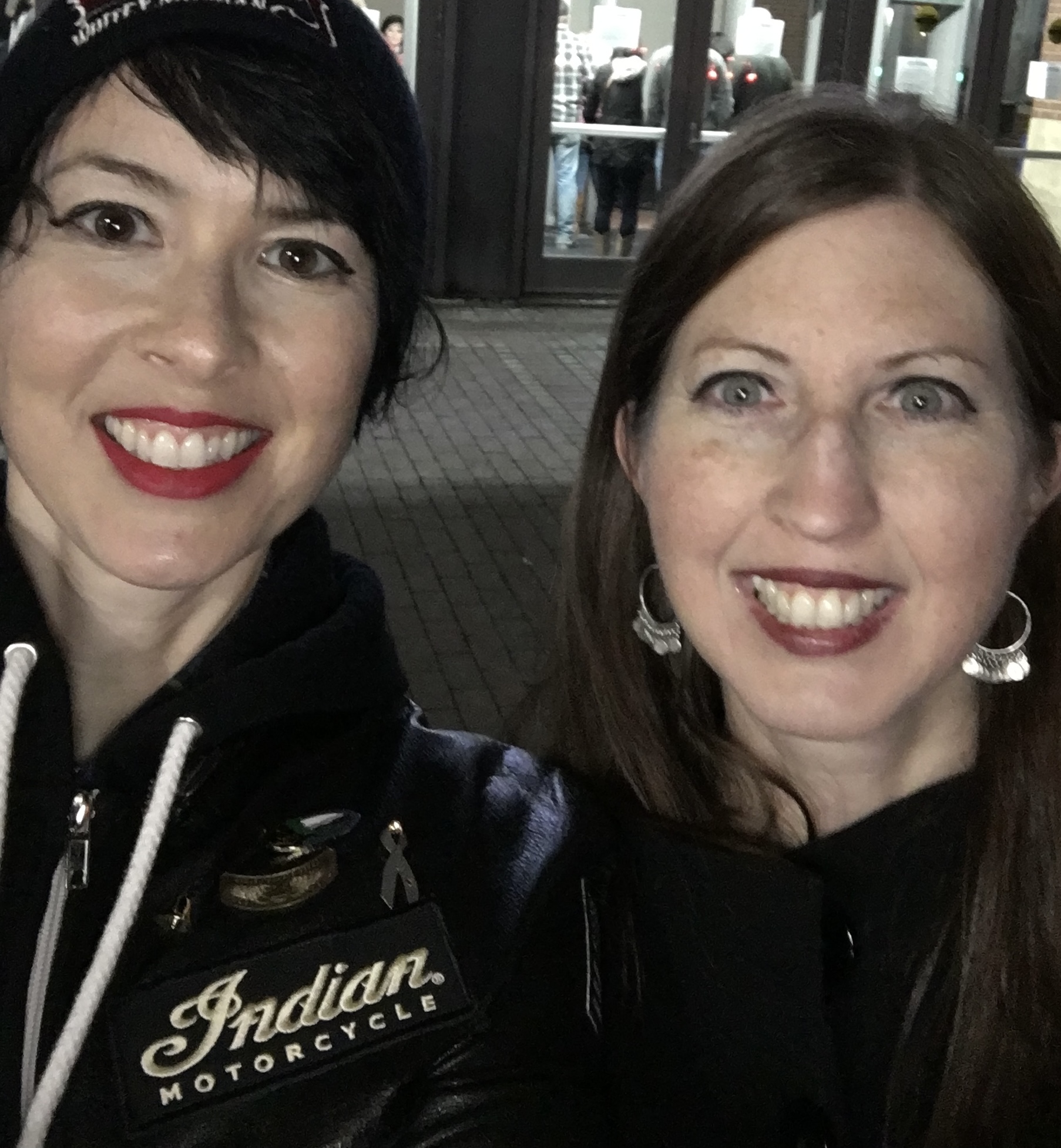

Kelly
Caregiver to Mom
My mom was diagnosed with Glioblastoma in June 2019, right before my senior year of college and the beginning of my combined degree master’s program at the University of Florida. I had never even heard of glioblastoma. Quickly, I became her primary caregiver and was rapidly overwhelmed and more scared with each treatment, side effect, and speed bump in the journey. I wish I had handled the situation gracefully and more communicatively; however, that was not my case. I struggled to hold on until I dropped everything abruptly. I let my health go, and I did not communicate with friends and others outside of my mother and grandmother in general. I learned lessons the hard way, and I hope my journey can help you!
My mom began treatment in Florida and fell through the cracks at the first treatment center, so we transferred her care to a cancer treatment center in Missouri where our family would surround her. I flew back and forth for college classes (Mom had previously worked for the airlines, so the free flights were a complete blessing) and spent most nights with my mom in the physical therapy rehabilitation facility in the chair next to her bed.
Life shifted drastically, and my senior year and ever since has looked much different than expected. With this being said, I do not regret a moment I spent with my Mom. I learned hard lessons in empathy, patience, diligence, prioritization, resilience, and even creativity. I also opened my eyes to patient advocacy, caretaker support, and what it means to be a “child” caregiver. I was in charge of her appointments, diet, medication, physical therapy, personal care, and just about anything else you could think of. For anyone, this is overwhelming. I went toe to toe with the doctors fighting for Mom to get the best care possible and advocating for her wishes and needs. To take the best care of my Mom, I had to take care of myself; when I didn’t, I let us both down.
Everyone’s journey is so different. My Mom was sick during the pandemic, so the Zoom calls and masks presented an additional challenge; most of the time, it was just her and me in the doctors’ office, when she usually could have had more family with us. I remember how thankful I was to have people visit and stop by our home for every card and all the acts of kindness. Her diagnosis did not define my Mom. Your loved one has the diagnosis but is not the diagnosis or defined by it. We did everything from the traditional care of Optune, Temodar, Radiation, Avastin, and partial surgery, to naturopathic treatments, but Mom never gave up hope, not even in her last breath. Hope and Joy. Hold on to the hope and uncover the joy. It is not just about the big celebrations, but the sweet small ones like a hot cup of coffee on a chilly fall morning.
Mom, our Warrior Woman, was called home to Jesus in November 2020. It is important to me to continue advocating for finding a cure for brain cancer, sharing what it is with others- bringing awareness, and helping those in their fight now. I know it’s been said before, but show yourself grace, and you are not alone. There is a team that wants to support you as well as the patient. Hope. Joy. Grace. Let me know how I can pray for you!
Lisa
Caregiver to Husband
For 20 years, Lisa has been a successful business development and client services professional serving the pharmaceutical. and biotech industry. She earned her MBA from Saint Joesph’s University and is currently at PRA Health Sciences as Senior Director, Client Services. Lisa’s exceptional career and healthcare experience served her well when she was unfortunately called upon to be the sole caregiver to her husband, who was diagnosed with a glioblastoma in 2018. Her caregiving capabilities combined with her professional accomplishments are the springboard to her personal mission as a patient and caregiver advocate. She is passionate about applying her substantial business acumen to leading research advances and finding a cure.
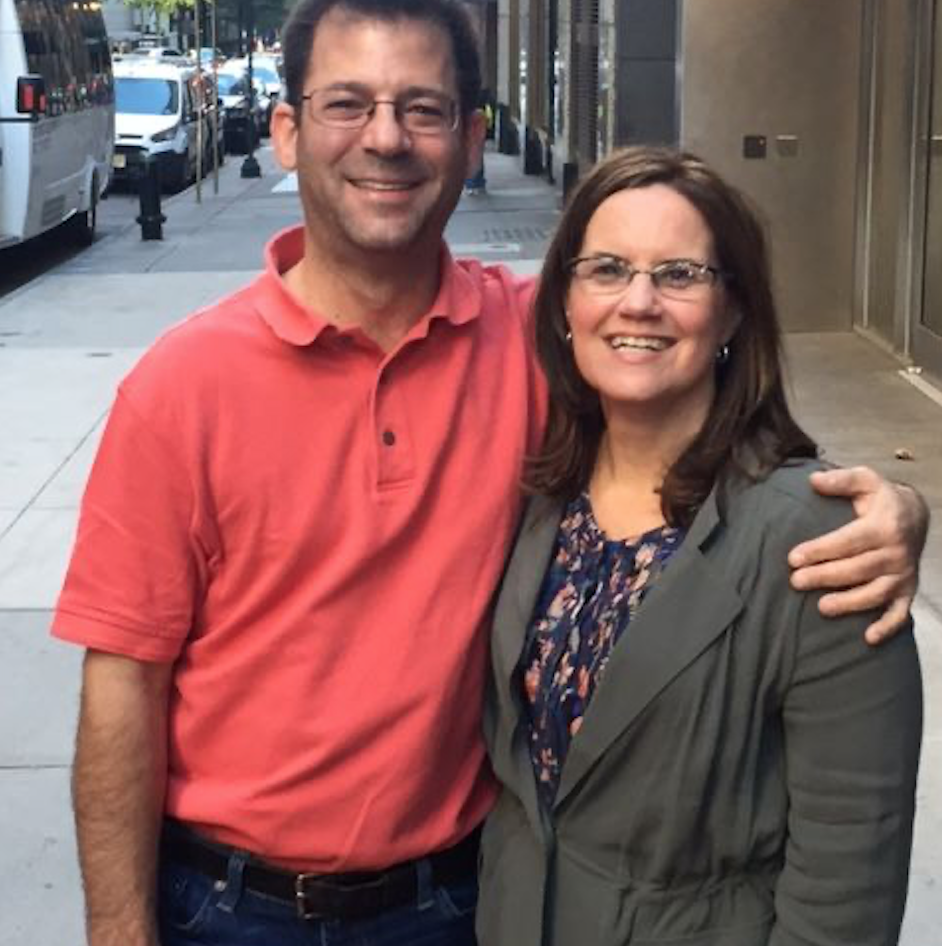

Krupa
Caregiver to Son
My son, Shaan, was diagnosed in May 2020 at the age of 3 and during the start of the pandemic. Things escalated pretty quickly from the moment we found out our sweet 3-year-old had a brain tumor located by his basal ganglia. Within a week the tumor doubled in size and his Intracranial pressure (ICP) became dangerously high which meant a quick surgery to help drain the fluid and placement of external ventricular drains. Shaan returned from surgery and unable to feel anything from the waist down and displayed many neuro concerns, the team immediately decided to keep Shaan in a sedated state. Shaan remained in this state for two months. They finally reached a diagnosis weeks later, CIC Rearranged-Ewing like Sarcoma. Since there was no protocol or data on CIC Rearranged, they based his treatment off Ewing Sarcoma. An aggressive radiation of 3 weeks came first while he was sedated. Fast forward to many close calls and tears that can fill Lake Michigan, Shaan was awake and extubated, and the next step was in motion. Shaan started chemo and completed 9 out of 14 cycles before the team decided to pump the breaks. He currently has a mass that potentially could be scar tissue or tumor, due to the location confirmation is not possible.
As Shaan’s primary caregiver, I am his advocate and have to educate myself constantly during each stage. Shaan is not able to communicate well or walk, so he needs a lot of physical help. He is on tube feeds and requires management of his medication. I am hopeful he will regain some of these lost abilities, so I spend anywhere from 3-4 hours daily working on therapies to build up his muscles. This is in conjunction with a therapy called Neubie Neufit for 3 hours weekly. My husband and I work side by side balancing our lives and schedules to work as a team to tackle each day.
Holly
Caregiver to Husband
My name is Holly Gainsboro. Originally from Newton, MA, I have lived in Charlotte, NC since 1995. I have two children – 28 and 24 years old, as well as two inherited sons also in their 20’s. My own caregiving journey began the day my late husband, Steven, was diagnosed with GBM IV on February 12, 2009—there are some dates that are forever etched in our minds. Over 22 months, Steven underwent two awake craniotomies (at Duke), and participated in several clinical trials, as well as the standard treatment of care.
Steven, was truly incredible as he maintained an “attitude of gratitude” throughout his time with a brain tumor even as his health declined, and his deficits became more apparent – speech, mobility, etc., he found something to be grateful for each and every day. Steven’s biggest concern from the very beginning was not wanting to be a burden on me (I am sure this resonates with so many reading this).
Being the caregiver to a brain tumor patient is not for the faint of heart, yet I wouldn’t change that time in my life for anything. It was hard….and it was glorious…and it was hard….and joyful, a blessing, and an honor….did I mention hard? Steven’s battle ended on December 11, 2010. Since that time, I have chosen to live my life fully, purposefully, passionately, gratefully, and hopefully. This is what Steven wanted for me, and while it is not always easy as those grief bursts do pop up, I feel blessed each day to have been his wife, and to be the mother of his children. We certainly lived out our wedding vows – in sickness and in health.
After Steven’s passing, I became a certified Grief Recovery Specialist, Grief Educator, Mindfulness Practitioner, Meditation Guide, and a Reiki Master Teacher. I am actively involved in the brain tumor
world as co-chair/chair of fundraising events, advocating, raising awareness about this insidious disease,
and providing support to patients, and their loved ones.
I am honored to be included among the Caregiver Ambassadors here at Brains for a Cure, and I am glad that you have found a community filled with those who understand what life can be like caring for a loved one. I am here to be your heart with ears, carrying your hope, as you navigate your way through
the twist and turns of your own journey.
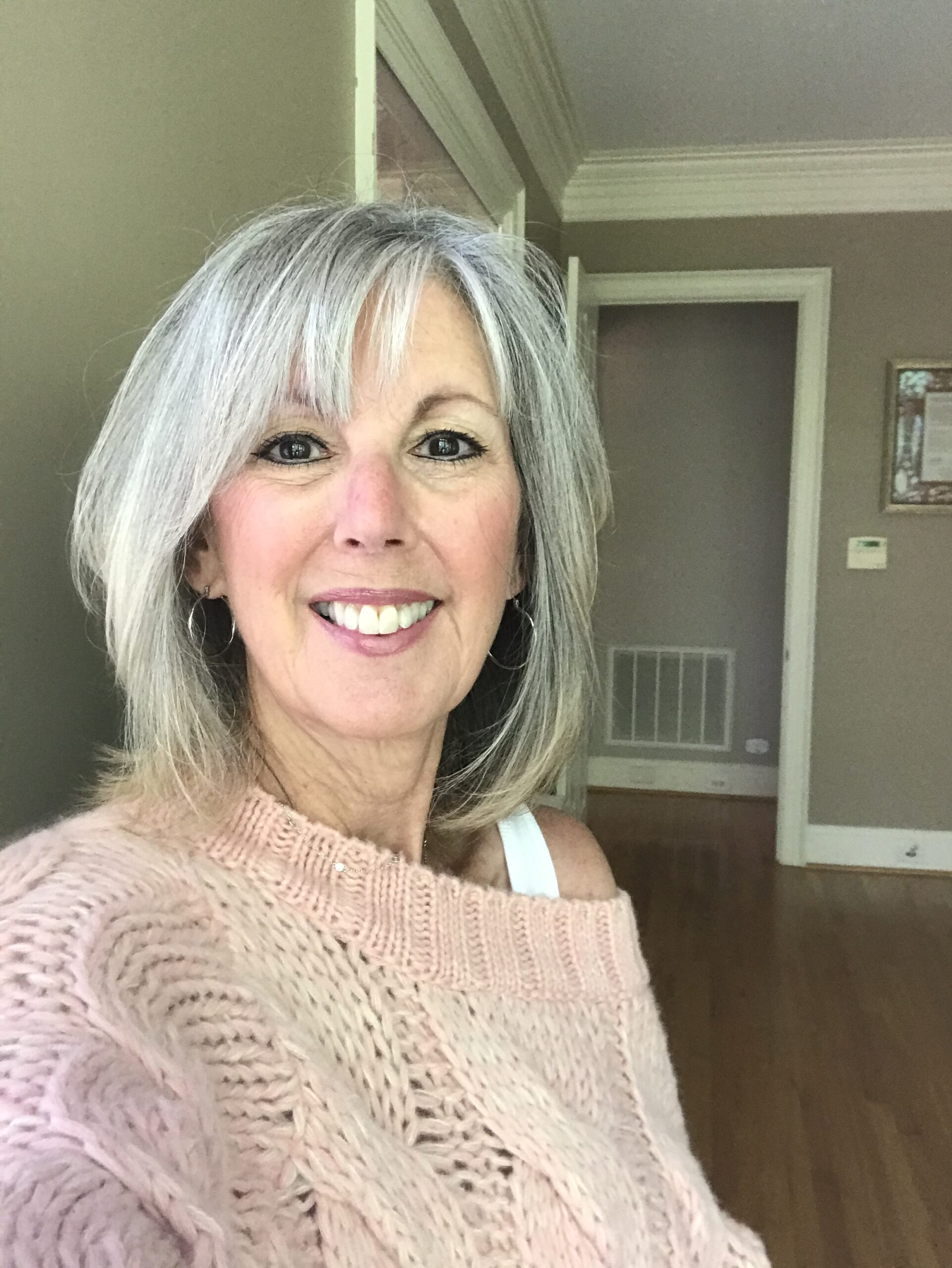

Krissy
Caregiver to Mom
My name is Krissy Benson; I had the honor and privilege to be the primary caregiver for my mom and best friend, Tammy. In March 2016, my mom was diagnosed with Stage 4 Glioblastoma multiform (GBM) at the age of 54. As an only child, and having lost my dad as a teenager (19), the diagnosis was devastating news for me to receive. Life forever changed in that moment. Despite the continuous support from my husband, children, and close friends, I often felt alone, overwhelmed, and ultimately faced numerous personal challenges during my journey as her caregiver. My mom was my “person” in this big world! She was the one who made the worst situations better and mended all of my wounds; but she couldn’t fix this problem. I had to stand on my faith & strength, that I never knew I had, for the both of us & my family.
Being my mom’s caregiver was truly the most challenging experience I have ever faced. Yet, putting aside all of the pain, sadness, and fear I felt, it truly was a gift. I became more than just her caretaker, I was her comfort, support, hope and rock on the hardest of days; which was truly a blessing. My husband and children were remarkably close with my mom and played a vital role in her everyday care. Although it deeply hurt me to see my daughters witness this traumatizing journey of brain cancer, it brought a sense of light in our darkness to see my girls learn the selflessness act of caregiving, despite the pain it caused their own hearts. Her fight was OUR fight for 13 months and 20 days!
My mom was healed of her battle in Heaven on April 30, 2017. Though our journey with this fight came to an end, the fight for others continues to impact many families. I became involved by volunteering with my local hospice center, participated in mentorship for caregivers, and have continued to support community awareness. I have chosen to channel my grief, sadness, and experience into advocating in memory of my mom. It is my hope as a Caregiver Ambassador for Brains for the Cure, that I can provide encouragement, comfort, understanding, and hope to caregivers during this difficult journey. You are not alone; your fight is OUR fight!
Presented with Generous Support From
